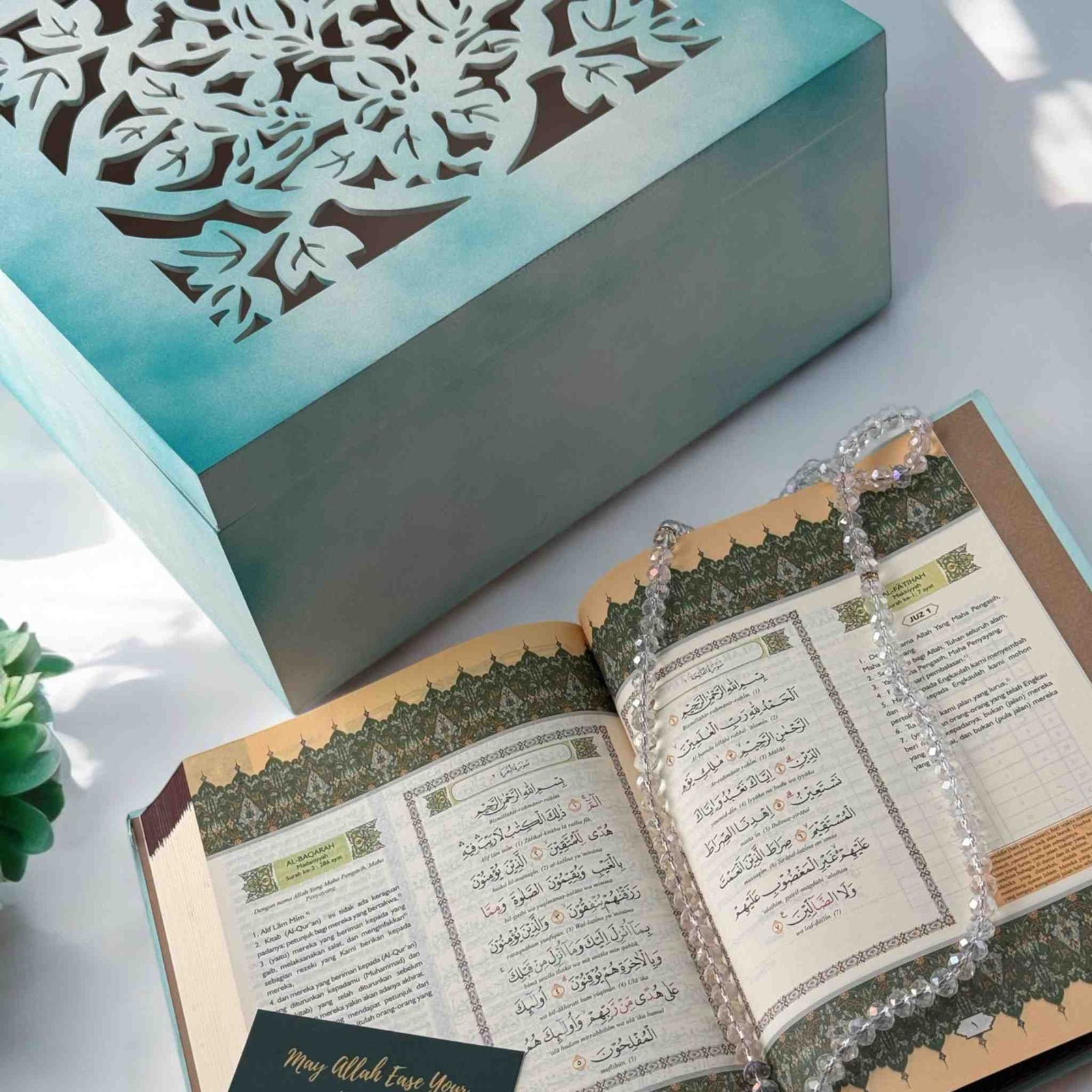Key Takeaways:
- The Quran is Designed for Easy Reflection and Remembrance: Allah reassures believers that He has made the Quran accessible and easy to understand, urging us to engage with it regularly.
- Reciting and Applying the Quran Strengthens Faith and Brings Guidance: The Quran serves as a divine criterion for truth, helping believers navigate their lives through wisdom and righteousness.
- Consistent Quran Recitation Brings Spiritual Rewards: Those who recite, reflect on, and apply the Quran's teachings will be rewarded with Allah’s love, mercy, and eternal blessings.
-
"Indeed, We have made the Quran easy to understand. But is there anyone who will be mindful?"
— Surah Al-Qamar (54:40)
This verse stresses that the Quran has been made easy for remembrance and reflection, urging us to read it regularly. -
"And We have certainly sent to you, O Muhammad, the Book in truth, confirming that which preceded it of the Scripture and as a criterion over it. So judge between them by what Allah has revealed and do not follow their inclinations away from what has come to you of the truth."
— Surah Al-Ma’idah (5:48)
This verse stresses that the Quran serves as a criterion for truth, encouraging us to read and adhere to its teachings. -
"Say, 'If you love Allah, then follow me, and Allah will love you and forgive you your sins. And Allah is Forgiving and Merciful.'"
— Surah Aal-E-Imran (3:31)
This verse encourages following the guidance of the Quran as a way to gain Allah’s love and forgiveness. -
"Indeed, the Quran is a guidance and mercy for the believers."
— Surah Al-Isra (17:82)
This verse reiterates the Quran’s role in providing guidance and mercy, encouraging frequent recitation. -
"Indeed, this Quran guides to that which is most suitable."
— Surah Al-Isra (17:9)
This verse emphasizes that the Quran is a source of guidance for all situations, encouraging regular engagement with it. -
"Recite the Quran with reflection. Indeed, reflection on the Quran brings wisdom."
— Surah Sad (38:29)
This verse highlights the importance of reflecting on the Quran as we recite it, to gain understanding and wisdom. -
"Say, 'Call upon Allah or call upon the Most Merciful. Whatever [name] you call – to Him belong the best names.'"
— Surah Al-Isra (17:110)
This verse encourages remembrance of Allah, as His names are a source of guidance, often tied to the recitation and reflection on the Quran. -
"Indeed, those who recite the Quran, establish prayer, and spend from what We have provided for them secretly and publicly, hope for a transaction that will never perish."
— Surah Fatir (35:29)
Again, the act of reciting the Quran is connected to earning Allah’s reward, and we are urged to keep reciting and reflecting upon it. -
"Indeed, the Quran is a noble, honored book. [It is] in a well-guarded tablet."
— Surah Al-Buruj (85:21-22)
This verse elevates the status of the Quran as a noble book, encouraging respect for it by continuously reciting and reflecting on its meanings. -
"And if We had decreed upon them, 'Kill yourselves,' they would not have done it, except for a few of them. So if they do not respond to you, then know that they are only following their own desires. And who is more misguided than one who follows his desire without guidance from Allah? Indeed, Allah does not guide the wrongdoing people."
— Surah Al-Qasas (28:50)
This verse reminds us that following the Quran is following true guidance, while ignoring it leads to misguidance.
These 40 verses collectively emphasize the importance of engaging with the Quran through recitation, reflection, and application. By doing so, we draw closer to Allah’s guidance, wisdom, and mercy.
Frequently Asked Questions:
Q: How can I make Quran recitation a consistent habit?
A: The Quran was revealed gradually (Surah Al-Isra 17:106), encouraging steady, regular engagement. Set aside a few minutes each day after prayer or before bed to build consistency.
Q: Why does the Quran emphasize reflecting on its verses, not just reciting them?
A: Allah repeatedly asks if we will be mindful (Surah Al-Qamar 54:40), reminding us that true guidance comes from understanding its message. Take time to ponder over the meanings and apply them in your life.
Q: What benefits come from listening attentively to Quranic recitation?
A: Surah Al-Araf (7:204) states that those who listen to the Quran attentively receive Allah’s mercy. Even if you are not fluent in recitation, listening can provide spiritual comfort and deeper connection.
Q: How can I apply Quranic guidance in my daily life?
A: The Quran serves as a criterion for truth (Surah Al-Ma’idah 5:48). Use its teachings to guide your moral decisions, resolve conflicts, and strengthen patience and gratitude in daily interactions.
Q: How does reciting the Quran impact personal growth and spiritual well-being?
A: Surah Fatir (35:29) links Quran recitation to good deeds and eternal rewards. Regular engagement with the Quran cultivates wisdom, inner peace, and a stronger relationship with Allah.











